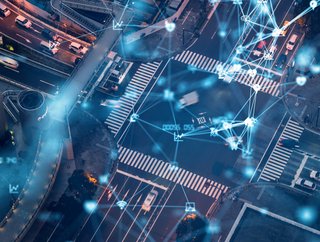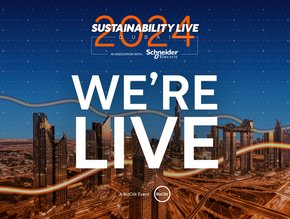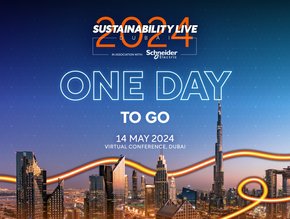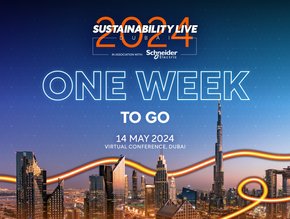Siemens digitalises the entire energy supply chain journey

Sustainability must be ingrained in every part of any commercial process in order to truly meet emissions reduction targets and shape a more responsible future for the global economy.
Over recent years, industries watched a number of transformations in the environmental realm become inherently supported by new digital technologies that are capable of sharing insights from steps along the supply chain. Digital transformation enables greater visibility of the entire product or energy life cycle, and data is the enabler of this sustainability intelligence that will allow industries to declare true compliance.
Siemens’ Xcelerator is a platform by the digital technology business that supports companies in supply chain, logistics and energy and scales their digital transformation.

The open digital platform is built to break down data barriers between teams and leverages collective intelligence to ensure that all stakeholders in the supply chain can access the information they need, which is much more difficult in a siloed information system.
“Whether your aim is to achieve an emission-free supply chain or reduce an individual product’s carbon footprint, the most effective decarbonisation strategy starts by shifting from a siloed way of working to a digitalised, connected one,” says Louise Harry, Director of Sustainability & Environment, Health and Safety at Siemens GB&I.
“The path to a greener future is paved with collective action and dedication. But that can only happen by sharing information.”
What are the sustainable benefits of end-to-end visibility?
Data transparency opens up new opportunities, such as the necessary decarbonisation of industries, as well as energy efficiency, resource efficiency, and adherence to a circular economy.
Decarbonisation: This hinges on companies' abilities to divulge their sustainability data. The true meaning of zero-emissions comes from Scope 3 transparency, making it crucial for suppliers to understand how the companies they engage with report their own impacts.
Energy efficiency: With better visibility, organisations can select the areas of operations that require significant work to decarbonise or increase efficiency. This is an internal action that—in the product industry, requires input from designers and manufacturers. With data available, organisations are more capable of eliminating emissions from their raw materials, reduce energy consumption of their production processes, and build circularity into their finished goods.
Resource efficiency: Part of this is based on design, but generally resource efficiency is also impacted by manufacturing. Not only are there cost benefits here, but leaner production reduces process waste and generates an element of fore-planning. Resource efficiency can also be applied to energy resources.
Circularity: Manufacturers require a holistic solution to deliver more sustainable products. This is, as mentioned, a result of both process sustainability and resource efficiency, which are the two key components of a circular product. A great example of this is a Siemens case study with a Spanish mattress product Pikolin, which reduced consumption of natural gas by 40% and production capacity increased by 30%.
“Gathering, analysing and sharing usage and carbon intensity data transparently between assets, locations and partners makes it possible to create collective intelligence. And this is the vital first step to enabling businesses to create a continuous loop of optimisation in near real-time and make better, more informed decisions,” says Harry.
“One way in which Siemens supports and enables a holistic, system-wide approach is with Siemens Xcelerator, our new open digital platform that helps preserve and create value by scaling up smart infrastructures and automation solutions. Using this open technology ecosystem, our customers can speed up the transformation of their businesses, from industry and buildings to grids and mobility, with a select range of IoT-enabled hardware, software, and digital services.”
*************************************************
For more insights into Sustainability - check out the latest edition of Sustainability Magazine and be sure to follow us on LinkedIn & Twitter
Other magazines that may be of interest - EV Magazine | Energy Digital
*********************************************
Net Zero LIVE will be hosted live from the QEII Centre, London on the 6th and 7th of March, and streamed globally via our virtual event platform Brella. Net Zero LIVE London will feature four LIVE themes, incorporating Sustainability LIVE, EV LIVE, Scope 3 LIVE, and Energy LIVE to deliver a holistic conference and exhibition experience with opportunities to connect with like-minded peers and actively contribute to crafting a sustainable future. Following Net Zero LIVE, viewers can also sign up for Sustainability LIVE Dubai and Singapore.
Sign up to the The Global Sustainability & ESG Awards 2024, coming to London on the 11th September 2024.
*********************************************
BizClik is a global provider of B2B digital media platforms that cover 'Executive Communities' for CEO's, CFO's, CMO's, Sustainability Leaders, Procurement & Supply Chain Leaders, Technology & AI Leaders, Cyber Leaders, FinTech & InsurTech Leaders as well as covering industries such as Manufacturing, Mining, Energy, EV, Construction, Healthcare + Food & Drink.
BizClik, based in London, Dubai & New York offers services such as Content Creation, Advertising & Sponsorship Solutions, Webinars & Events.






